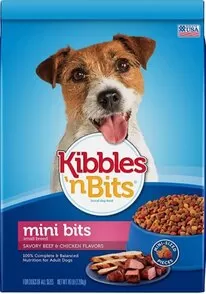German shepherds are a highly energetic breed that needs plenty of exercises every day. To fuel this energy they require food that’s going to power them through their whole day.
Beginning as puppies, German shepherds need proper nutrition and not only for energy but for their active lifestyle.
They need the right type of food with the necessary vitamins, minerals, and nutrients for their specific breed, weight, and age.
Puppies, adults, and senior German shepherds all have different nutrient requirements and calorie intake is also individual.
Foods will not only be changed throughout your German shepherd’s lifetime, but portions and caloric intake will differ.
Growing puppies that are active require more food and calories than senior dogs who are less active and have a tendency to gain weight if they are fed too much. German shepherd puppies will need 1,600 – 2000 calories while seniors need only 1,272 – 1,540 calories.
In the following article, you will learn about the best food for German shepherd puppies, different diet types, and how often to feed them. Also included will be German shepherd puppies’ food amount.

For your dog’s vitamin supplement, food, toys, or other dogs product please visit the Sundays for Dogs website.
Types Of German Shepherd Puppy Food
When you pick your German shepherd puppy up at the breeder’s at about eight to twelve weeks old, they will most likely give you some of the food your pup was being fed there along with feeding instructions.
It should have been high-quality puppy food, just right for their needs. If you are happy with that food, then you can continue feeding it. If you’re not sure if it’s the best food for them, speak with their veterinarian.
If your pup is thriving on their original food and you decide to stay with it, when they are old enough for adult food, choose the same type or brand, but the adult version.
After thinking about puppy food, researching it, or speaking with your veterinarian, if your decision is to switch foods, change within the first few weeks, but do so gradually, mixing the new food with old and increasing the new food so that between two and four weeks, your pup is eating all new food. Changing foods gradually decreases the chance of stomach upset.
Below I have listed a few different types of food diets you may consider feeding your puppy. Keep in mind that German shepherd puppies grow quickly and can develop health issues that can affect their joints and bones.
These quick-growing puppies are large breed dogs and the German shepherd is in this category.
Hip dysplasia, which is a malformation of the hips is one such health problem. Large breed dogs need specifically designed diets that can prevent bone and joint problems. Do consult your veterinarian to make sure the diet you choose is right for your puppy.
To check your shepherds’ health status or their DNA checks, please visit the Embark vet website for all the help you may need.

BARF diet
A new diet that has seemed to get much hype is the BARF diet. This stands for bones and raw food diet and sometimes “biologically appropriate raw food.“
This diet has really been around for centuries as non-domesticated dogs once caught their own food and ate it raw.
Nothing in this diet is cooked. This diet has been proven to provide nutritionally sound food while strengthening the digestive system and preventing digestive issues.
German shepherds are a breed that is prone to a sensitive stomach. The raw diet also claims to give protection against hip dysplasia,
Although beneficial, this diet should be researched thoroughly and discussed with your pup’s veterinarian.
It is sometimes hard to be sure that your pup is getting all of the nutrients they need from this diet. At this crucial stage of your puppy’s life, the right amount of nutrients is a must.
Feeding the BARF diet will be more costly and time-consuming and because nothing is cooked, salmonella and E coli could be an issue.
for more information and details can read the full guide of your puppy’s Barf diet written by Dr. Ian Billinghurst is available on amazon kindle can BUY NOW, or by clicking the following picture.

Homemade diet for German shepherd puppy
This diet is another that would have to be well-researched. There are many healthy foods that we humans eat that are wonderful for your pup and also appropriate.
You would definitely need a diet to follow plus recipes and there are many books on the subject as well as the BARF diet.
This may become very time-consuming. You would also need to make sure that your German shepherd puppy is getting everything they need to grow strong without any medical problems.
Portions could become a problem because they could easily be underfed or overfed. Keeping things all natural is a great idea, but with a homemade diet, you need to consider your pup’s nutritional needs.
If a puppy’s diet is too rich and they get too much of some vitamins and not enough of another, they could suffer from disorders.
Although many people’s foods are acceptable for dogs, they do not have the same systems as we do, therefore they metabolize foods differently. Again, consult your veterinarian before undertaking this type of diet.

Dry food – kibble
There are many dry kibble foods on the market that are high quality and formulated specifically for your German shepherd puppy, allowing you to go right into that line of adult food when the time is right.
These foods for German shepherd puppies fill the bill for all of their nutritional needs and are designed to keep your puppy’s sensitive digestive system in tip-top shape, preventing any upset and taking the guesswork out of the feeding dilemma for you.
Speak with your veterinarian and do some research to see ratings on different brands of kibble. German shepherd foods should contain lean protein and also be low in fat.
You don’t want your pup to be underweight but being overweight is very bad for joints and may cause other health concerns.
You may also mix a small portion of good quality wet food with kibble and even some cooked, chopped, or shredded fruits or vegetables that are acceptable for an extra healthy kick and added flavor. Check with your vet, as many fruits and vegetables are safe, but some are not.
Kibble also helps to keep your puppy’s teeth clean with all of that crunching. Soft food does not do that.

Feeding Puppies – How Much? How Often?
German shepherd adult females will weigh from 49lbs to 71lbs and males, from 66lbs to 88lbs. Usually feeding is done by weight. Most times if you are using kibble, the weights and amount of food will be on the bag.
You will probably take your puppy home when they are between eight weeks and twelve weeks old.
Listed below is some weight and food information.
| Male puppies age | puppies weight by Pound lb | puppies weight by kilogram kg |
| 1 Month | 5.5 lb – 9 lb | 4.49kg – 4.08kg |
| 2 Month | 16lb – 20lb | 7.26kg – 9.07kg |
| 3 Month | 22lb – 30lb | 9.98kg – 13.61kg |
| 4 Month | 30lb – 40lb | 13.61kg – 18.14kg |
| 5 Month | 40lb – 49lb | 18.14kg – 22.23kg |
| 6 Month | 49lb – 57lb | 22.23kg – 25.85kg |
| 7 Month | 57lb – 62lb | 22.85kg – 28.12kg |
| 8 Month | 62lb -66lb | 28.12kg -29.94kg |
| 10 Month | 64lb – 71lb | 29.03kg – 32.21kg |
| 11 Month | 66lb -73lb | 29.94kg – 33.11kg |
| 1 Year | 71lb -75lb | 32.21kg – 34.02kg |
| 1.5 Year | 71lb -79lb | 32.21kg – 35.83kg |
| 2 Years | 71lb – 84lb | 32.21kg – 38.10kg |
| 3 Years | 79lb – 88lb | 35.83kg -39.92kg |
The total daily amount for puppies should be split into 3 or even 4 smaller meals a day. Puppies do get hungry but have smaller tummies. Spreading their food out satisfies them better and stays with them longer.
| Female puppies Age | Puppies weight by Pounds {lb} | Puppies weight by kilograms {kg} |
| 1 Month | 4.5lb -8 lb | 2.04kg – 3.63kg |
| 2 Month | 11lb – 17lb | 4.99kg – 7.71kg |
| 3 Month | 17lb – 26lb | 7.71kg – 11.79kg |
| 4 Month | 31lb – 35lb | 14.06kg – 15.88kg |
| 5 Month | 35lb -44lb | 15.88kg – 19.96kg |
| 6 Month | 44lb – 49lb | 19.96kg – 22.23kg |
| 7 Month | 49lb -53lb | 22.23kg – 24.04kg |
| 8 Month | 53lb – 57lb | 24.04kg – 25.85kg |
| 10 Month | 57lb – 62lb | 25.85kg – 28.12kg |
| 11 Month | 60lb – 64lb | 27.22 kg – 27.22kg |
| 1 Year | 60lb – 64lb | 27.22kg – 27.22kg |
| 1.5 Years | 60 lb – 66lb | 27.22kg – 29.94kg |
| 2 Years | 62lb – 66lb | 28.12kg – 66.94kg |
| 3 Years | 66lb – 70lb | 66.94kg – 31.75kg |
If your pup does not eat all of its food in one sitting, get rid of it. Don’t let it sit around for them to pick at or they may not be hungry for their next meal.
| Puppies Age | average weight in Pound | Average weight in kilograms | feeding puppies times |
| 2 Months | 11lbs – 20lbs | 4.99kg – 9.08kg | 1cup and1/4 cup – 2 cups and1/4 cups |
| 3 Month | 10lb -30lb | 9.54kg – 13.61kg | 1 cup and 1/2 cup – 2 cups and 1/4 cup |
| 4-5 Months | 30lb – 51lb | 13.61kg – 23.13kg | 2 cups and 1/4 cup – 3 cups and 1/2 cup |
| 8 Months-1.5 Years | 50lb -80lb | 22.98kg – 36.29kg | 3 cups and 1/2 cup – 4 cups and 1/2 cup |
| 2 Years -3 Years | 80lb -100lb | 36.29kg -45.36kg | 4 cups and 1/2 cup – 5 cups |
If you have a picky eater puppy, this would be the time to add a little acceptable safe fruit or vegetable to pique their taste buds.
The weights and food portions may change.
If your veterinarian feels they are gaining too much weight or not gaining enough you may need to cut back or feed more.
Treats are fine but don’t offer them too often. They won’t eat their food and many treats don’t have a lot of nutritional value.
If you find that your puppy is inhaling their food too fast, this can be bad for digestion. Puzzle bowls can be purchased. They make your pup slow down by having to dig a little for their food, giving them time to chew.
It is your pup’s weight that will determine how much food they are served. Consult your veterinarian if they always seem hungry, don’t seem to be gaining weight, or if are gaining too much weight.
By the time your German shepherd puppy is one year, it can begin adult food and be fed twice daily rather than three times a day.
When raising your German shepherd puppy, the best food for your puppy will be what suits your lifestyle and needs.
A raw or homemade diet may work great if you have spare time and they are thriving on it. Otherwise, a kibble diet may be a better choice, but don’t forget to add a few homemade foods from time to time
The best person to consult for any questions or concerns regarding your German shepherd puppy’s diet is always their veterinarian.